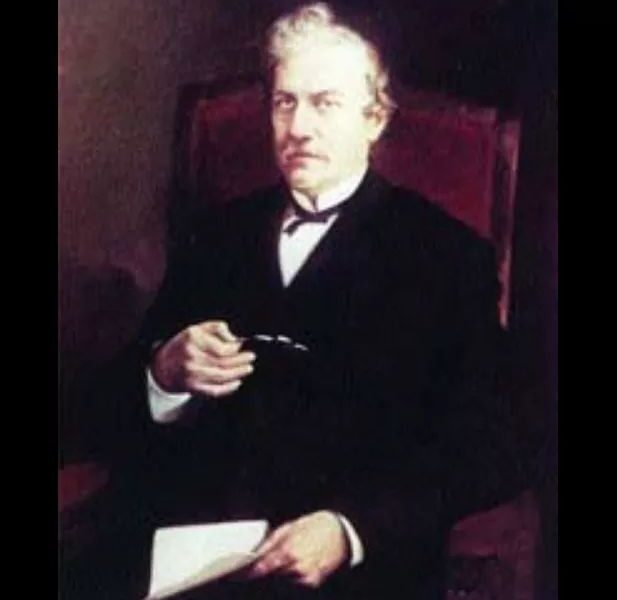Konstantinos Paparrigopoulos (Κωνσταντίνος Παπαρρηγόπουλος) (1815-1891) was a 19th-century Greek historian, considered the founder of modern Greek historiography.
He analysed Greek history from ancient times to the present as a continuous history in his multi-volume History of the Greek Nation and is also known for his original research in Byzantine history and other fields of Greek studies.
Paparrigopoulos was born in Constantinople in 1815.
His father, a native of Gortyna, was killed by the rabble of Constantinople when the Greek War of Independence erupted in 1821.

Paparrigopoulos not only saw this grisly spectacle, but he also attended the execution of his brother, Michael, and of his two uncles.
His mother who survived the slaughters, fled to Odessa, where Paparrigopoulos accomplished his studies as a bursar of Tsar Alexander I.
In 1830 Paparrigopoulos travelled to Greece to study in the "Central School" (Κεντρικό Σχολείο) of Aegina, founded by the Greek leader Ioannis Kapodistrias. He continued his studies in France and Germany.
Returning to Greece, Paparrigopoulos was appointed in the Ministry of Justice, but in 1845 was forced to quit as he did not yet possess Greek citizenship.
He was reappointed as a teacher when he obtained the Greek citizenship (as a "Gortynian").
In 1851 he became a professor of history at the University of Athens.
In Greece, Paparrigopoulos is often considered its greatest historian of modern times, because he was the first who, in his History of the Greek Nation, regarded the history of Greece as a continuity of the Greek nation. 
The interpretation of Byzantium's Greek character in the work of Sp. Zampelios was the first step in the effort to refute Fallmerayer's theory now disproven theory that there was no continuity between ancient and modern Greeks.
It was supported that the ancient Greek civilization had not faded away but had been creatively reshaped as it met Christianity, which took place during the Byzantine Empire.
In 1873 Paparrigopoulos lost his beloved son and famous poet, Dimitrios Paparrigopoulos. In 1890, he lost his daughter Elena and the following year he lost his wife.
The founder of Greek histography died on April 14, 1891.
All his main writings are in Greek.
- About the emigration of Slav tribes in Peloponnese, 1843.
- The last year of the Greek independence, 1844.
- Elements of General History, 1845.
- General History, 2 volumes, 1849.
- Introductory lesson, 1855.
- History of the Hellenic nation, 6 volumes, 1860-1877.
READ MORE: Professor Robert Rosenstone says, “the study of history was born in Greece.”

